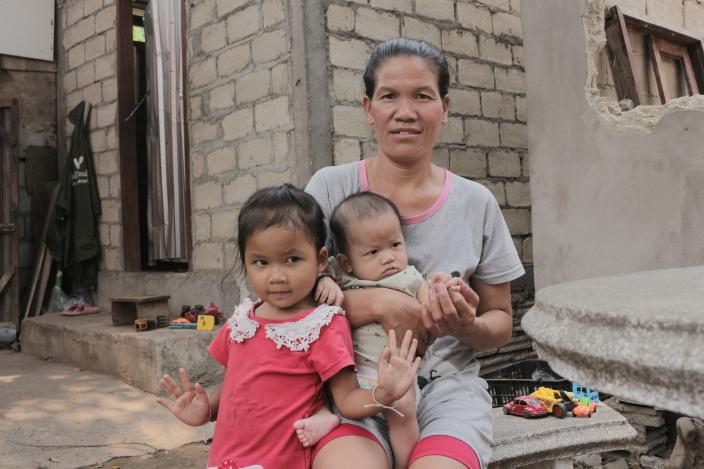Bing Phonkao, 39, informal worker and mother of four, lives in Vientiane Capital, Laos, with her husband and two youngest children. She moved to the capital five years ago in search of work, and after getting married she decided to relocate.
Before giving birth to her third child, she often jumped back and forth between Laos and Thailand, working mainly at construction sites. For the last five years or so, she has made a living collecting Non-timber forest products (NTFPs) in wetland areas around the city and selling them at the local markets. She does not own any land for farming, so she relies primarily on wildly growing vegetables and plants.
Ponds and other small bodies of water are present throughout the city. In the morning and during the evenings, people often visit these areas to look for fish, snails, frogs, river weed, and vegetables that grow around the water. In challenging times, the wetlands are a critical source of nutrition for those in need.
"It has been a difficult time for us. I used to earn between 70,000 to 80,000 LAK (USD 7.47 - 8.53) a day from selling fruits and vegetables at the markets, but my earnings have reduced by half since the lockdown."
The lockdown measures imposed by the Lao government to manage the spread of Covid-19 encouraged the closure of most markets, leaving Bing with very few customers. Since the lockdown, she has only been able to earn half of what she made before. Her customers, many of whom continue to face financial difficulties due to the pandemic, would bargain for lower prices, as they were also not making much income. She often relied on her regular customers and the support of close friends to make ends meet.
" We would share what we collected or give 5,000 LAK (USD 0.53) here and there."
"Since the pandemic, raising a family has been harder," shares Bing. Since schools remained closed until the end of 2020, her five-year-old daughter had to stay at home with little to keep her occupied. Bing also added that she would send money to her two children living with her in-laws in Xayaburi province. However, she had to stop about two years ago as she was not making enough to support the whole family. "Although the schools are open now, I still can't send my daughter because I can't pay her fees."
Like many mothers, Bing has found herself balancing caring for her children, her youngest being only a few months old, and maintaining a livelihood source. With few opportunities ahead she is worried about the future.
